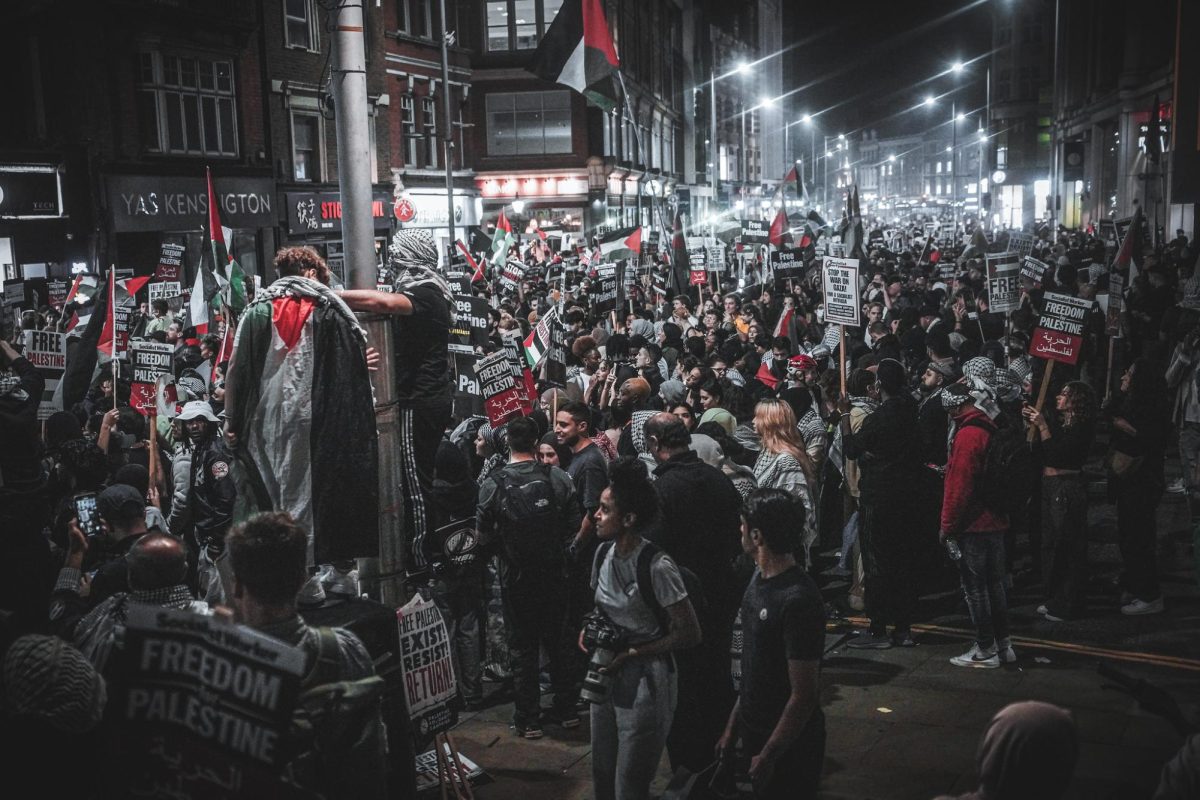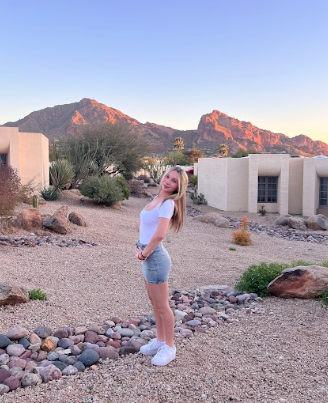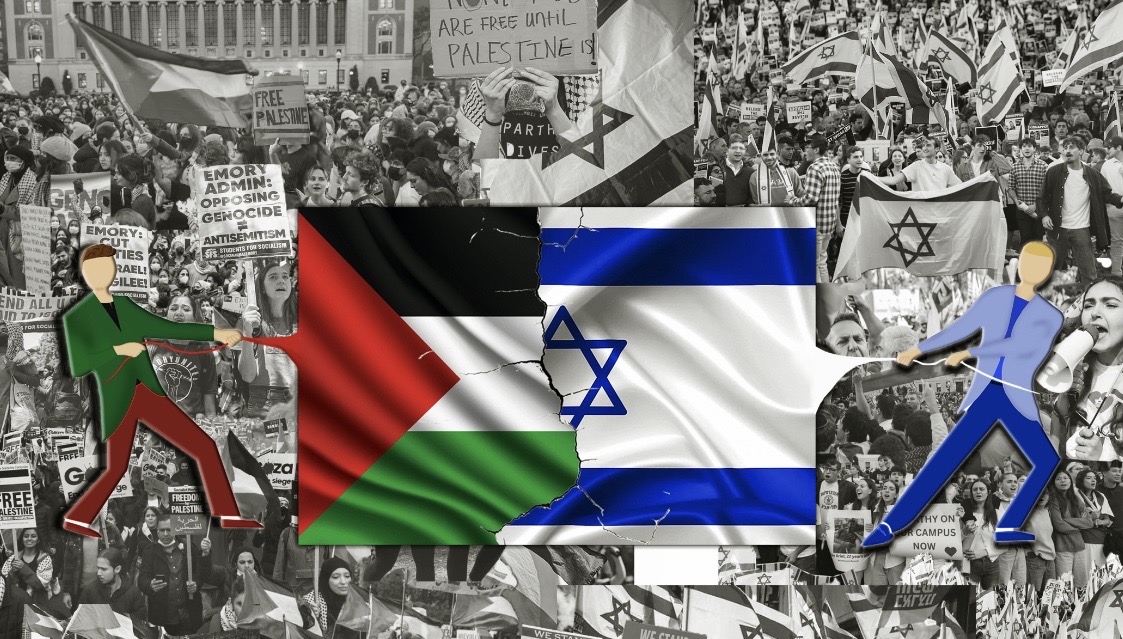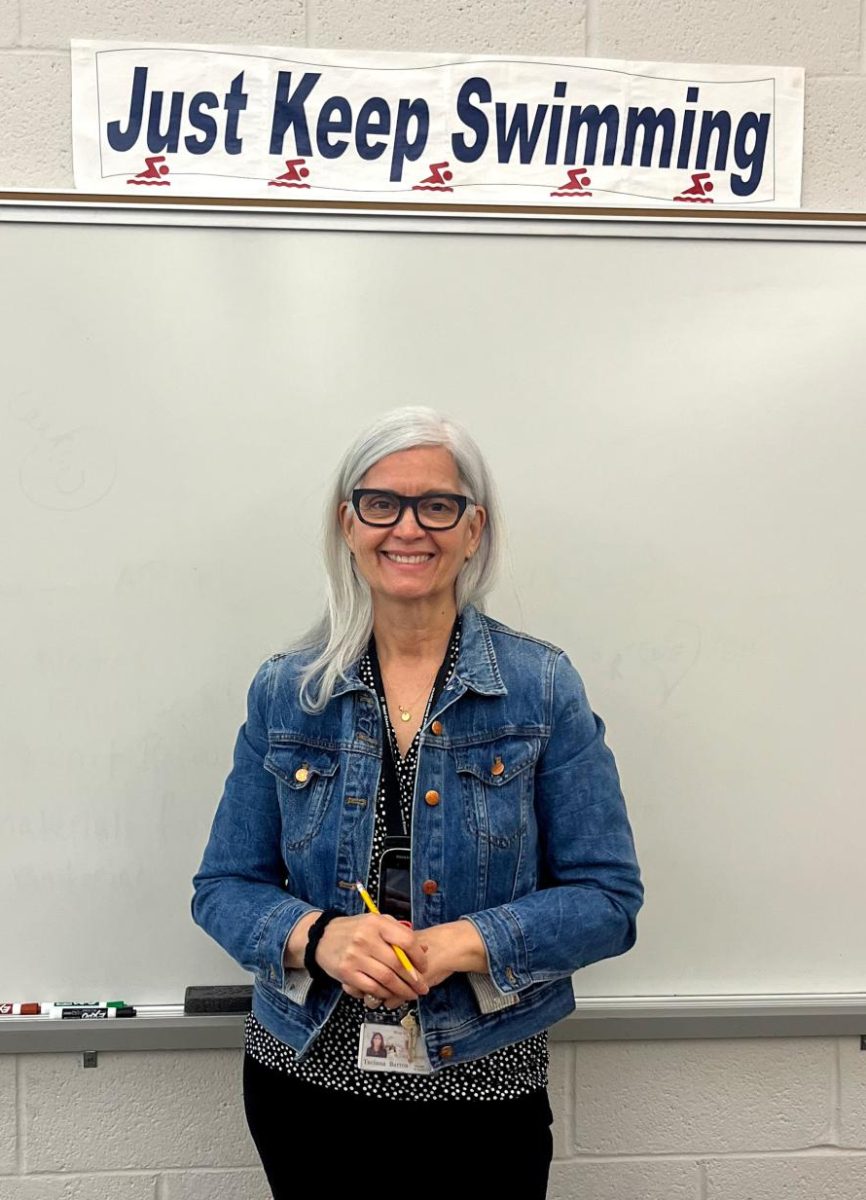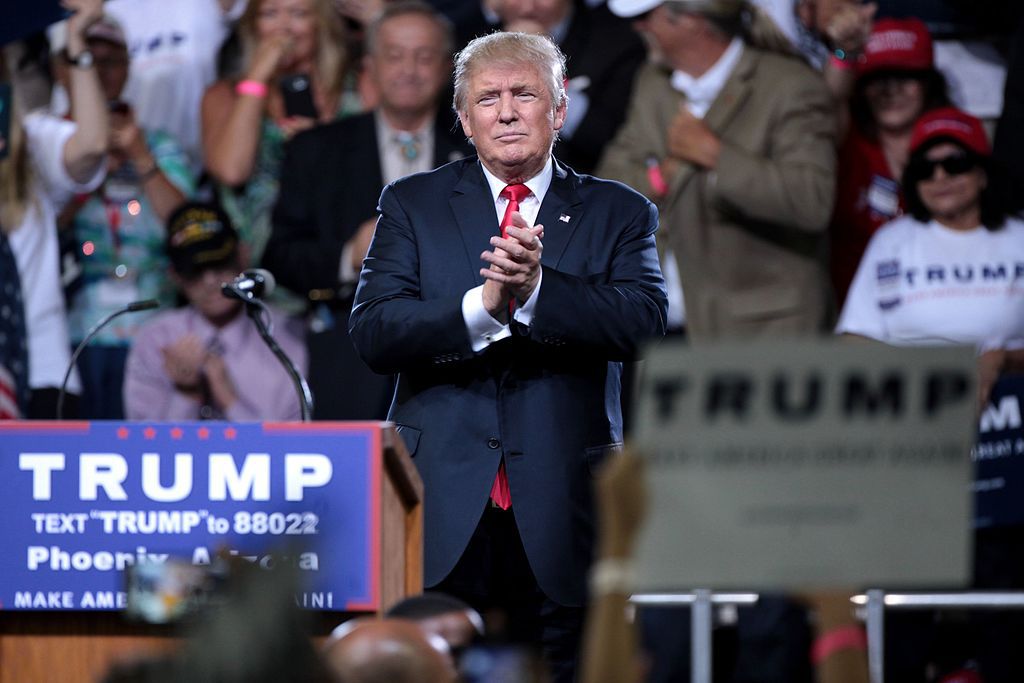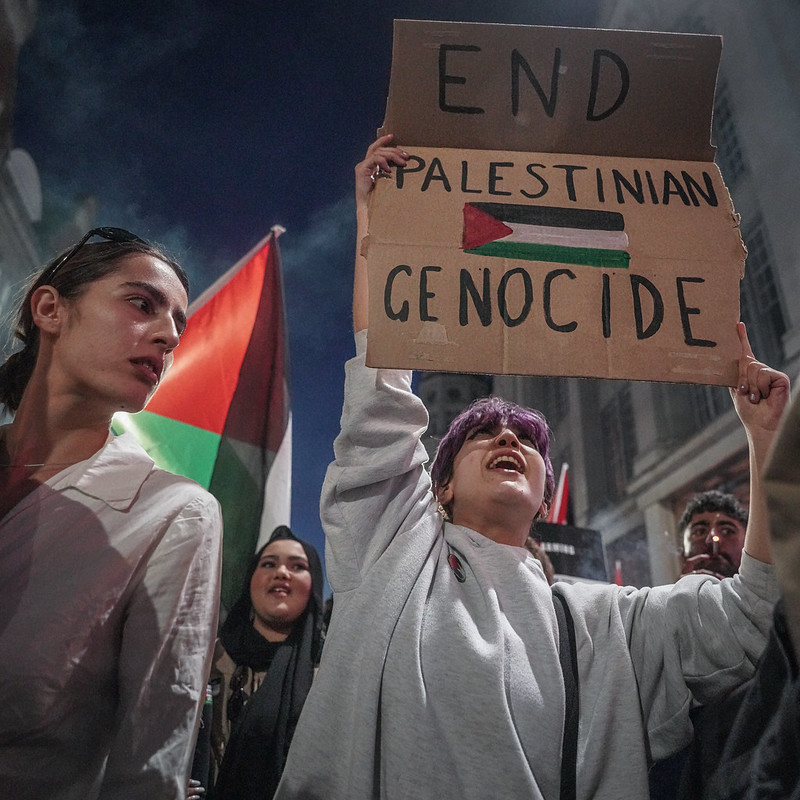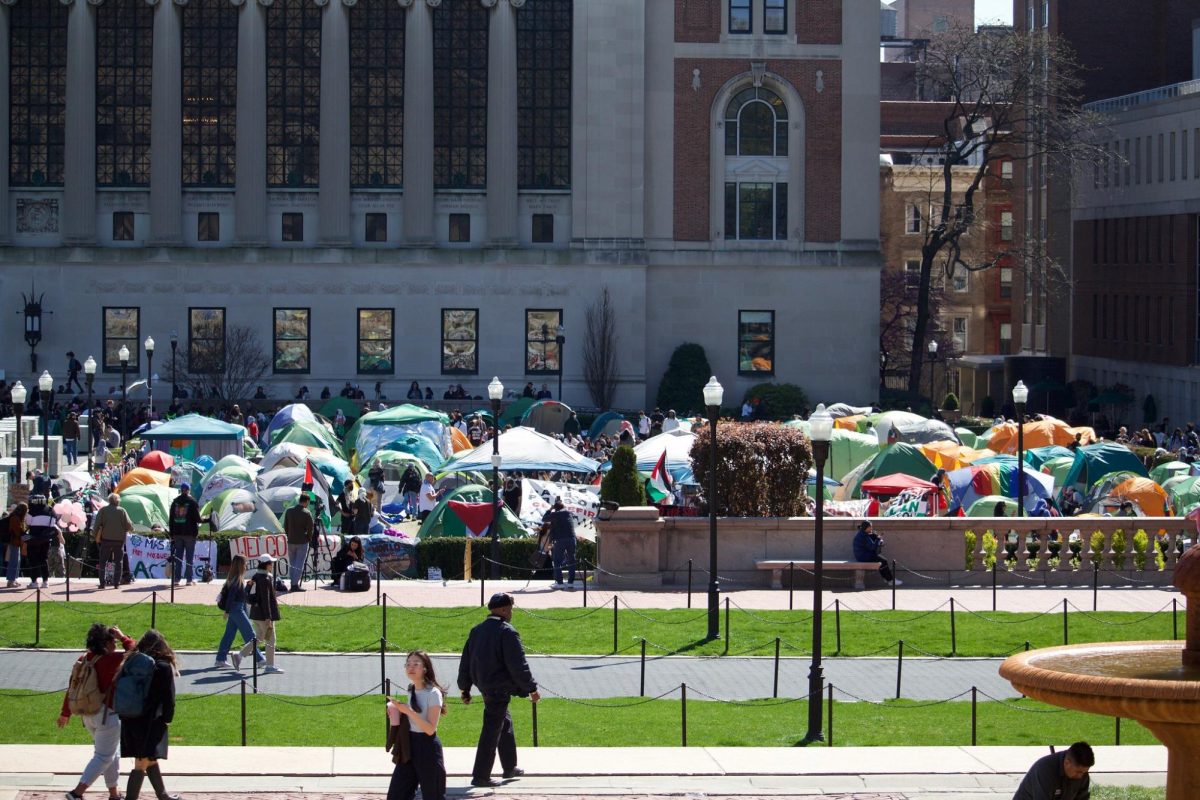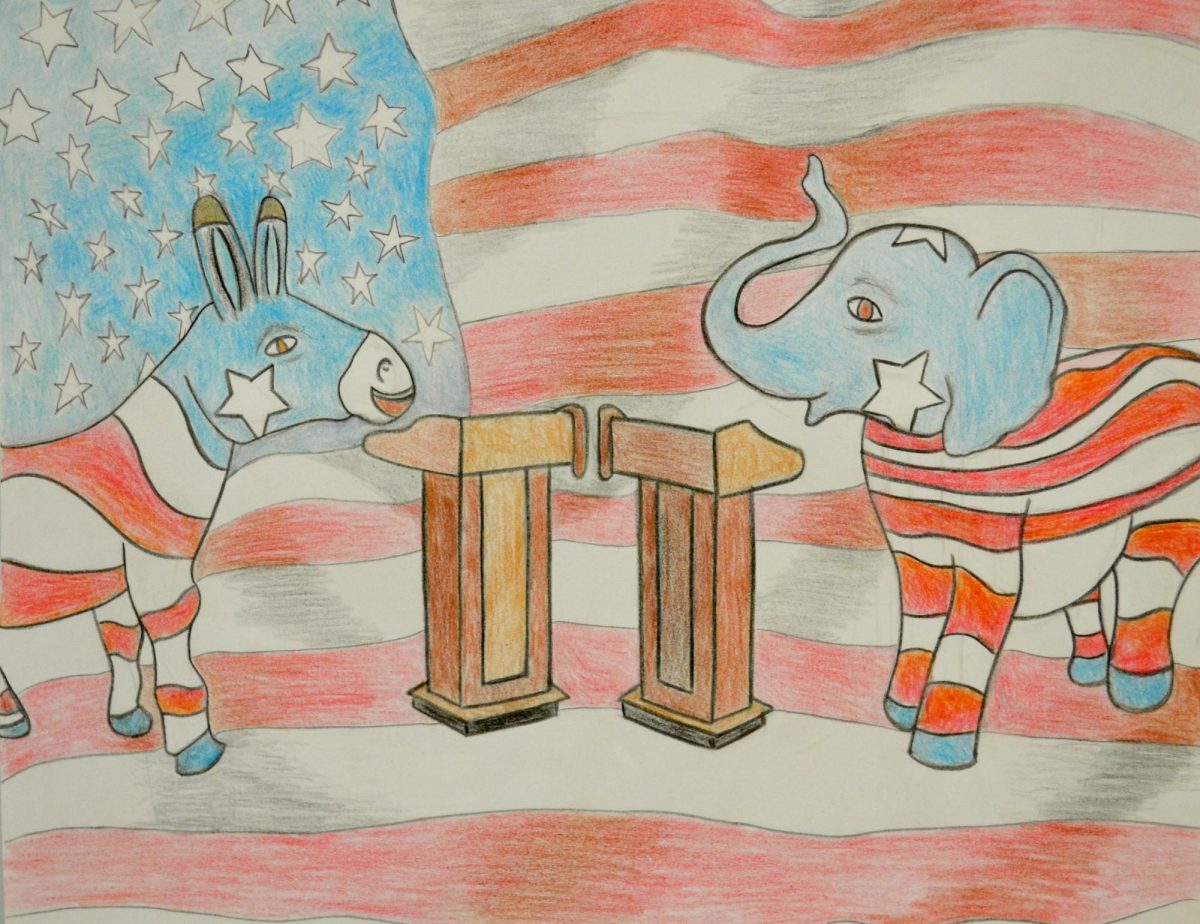Starting this past April, protests have been escalating as sides are taken in the Israel-Hamas War. Pro-Palestine organizations refuse to go unheard, setting up encampments and blocking off buildings. As protests spread throughout college campuses, people are unsure of how far the students are permitted to go until the First Amendment of the Constitution is violated.
Constitutional Law teacher Timothy Glenn decoded the protests using his knowledge of the First Amendment.
“What they are saying, whether people like it or not, is their right to say,” Glenn said. “Not all speech is protected speech and physical threats are not protected. Symbolic speech and holding up signs is mostly protected by the First Amendment.”
The amendment protects the freedom of religion, speech, press, assembly and petition for every American citizen. However, it does not protect true threats, defamation or fighting words. Under these provisions, the pro-Palestine organizations have the right to share their views. This becomes an issue when the protests violate their university Code of Conduct. ABC News explains that students aren’t being arrested for what they are saying, as their speech is protected by the First Amendment. The charges against the students taken into custody are instead related to trespassing.
Because private institutions are not bound by the First Amendment and provide their own rules on what speech is limited, this has also led to more arrests.
“Both public and private schools can limit where protests are held and what kind of encampments can be built,” Glenn said. “Whatever regulations they establish have to be tailored to serve a specific school interest and have to be applied consistently.”
The first encampment was set up at Columbia University in New York, and it spurred students across the nation to do the same thing. They set up tents on campus property and even blockaded themselves into a building, refusing the leave per NYPD request. Columbia’s code of conduct gives every student the right to rally and petition, but the university can regulate the time and place. The students did break the private universities’ trespassing regulations, however.
On a high school level, the First Amendment does not apply when a rally disrupts everyday learning because public schools are required to provide a safe place for all of their students.
“Even at high school, you do have free speech,” Glenn said. “Tinker v. Des Moines is the case that decided that. But you have fewer rights in high school than in college because the primary interests of school are education and protection. Speech will not be protected if it violates either of these two pillars.”
At the University of Southern California (USC), the campus was closed to the public amid active protests, according to AP News. Both Columbia and USC have canceled their main graduation ceremonies on account of safety concerns.
As the protests spread across colleges all over the US, it is up to each university to decide how to handle the situation. Many believe there needs to be a balance between letting the organizations peacefully protest without disrupting the level of learning. The most important priority is that safety is ensured for every student of any ethnicity.
“In the United States, there is no legal definition of hate speech,” Glenn said. “Until it crosses the line into actual physical violence, there is really nothing that can be done.”
Whether you are hoping for a cease-fire or in favor of Israel, laws and regulations need to be consistent and enforced accordingly.
Photo credit: “Palestine solidarity protesters” by Alisdare Hickson is licensed under CC BY-SA 2.0 DEED.
